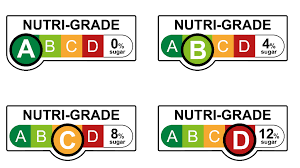
Diabetes and Your Daily Cup: The Balancing Act of Coffee
For many Singaporeans, coffee is essential for starting the day and combating afternoon fatigue, contributing to the country’s consumption of 15,000 metric tonnes annually. For individuals with diabetes, understanding how coffee affects blood sugar levels is crucial.
How Does Coffee Affect Blood Sugar?
The impact of coffee on blood sugar levels is complex and varies based on individual health conditions and coffee consumption specifics.
For Individuals Without Diabetes
Research indicates an inverse relationship between coffee consumption and the risk of developing T2D. A 2018 meta-analysis in Nutrition Reviews linked higher coffee consumption to a lower risk of T2D. However, short-term studies suggest coffee may increase insulin resistance and blood glucose levels.
A 2019 systematic review in the Journal of Traditional and Complementary Medicine found that coffee could improve glucose metabolism in the long term, adding further complexity to the issue.
For Individuals With Diabetes
The impact of coffee on blood sugar levels in diabetic individuals is similarly nuanced. A 2013 systematic review in the Journal of Human Nutrition and Dietetics noted that caffeine intake significantly increased blood glucose concentrations in the short term. Long-term studies are less conclusive.
Some evidence points to protective effects. A 2018 study in Frontiers in Endocrinology found a dose-dependent protective effect of caffeine on mortality among women with diabetes. A 2023 meta-analysis in the BMJ indicated that consuming four cups of coffee daily was associated with a 26% lower risk of early death in individuals with diabetes.
Reconciling Conflicting Findings
While coffee can acutely raise blood glucose levels, it may also offer long-term benefits for glucose metabolism and mortality. Scientists propose that the short-term hyperglycemic effects of caffeine are counterbalanced by the long-term benefits of coffee’s bioactive compounds, such as CGA, which enhances insulin sensitivity and reduces fasting plasma glucose.
Should You Drink Coffee if You Have Diabetes?
For individuals with diabetes, moderate coffee consumption appears to be safe. The FDA recommends limiting daily caffeine intake to 400 mg, roughly equivalent to four to five cups of coffee. It is also essential to select coffee options with minimal added sugars.

Photo by MOH
What Types of Coffee Should People With Diabetes Drink?
Choose coffee with minimal added sugars. The American Heart Association suggests that men and women limit daily sugar intake to 36 grams (9 teaspoons) and 25 grams (6 teaspoons), respectively.
In Singapore, the Nutri-Grade labeling system helps identify healthier coffee options, grading drinks from “A” (lowest sugar and saturated fat content) to “D” (highest levels). Aim to avoid coffees with “C” and “D” labels.
Sugar Content in Common Singaporean Coffee Drinks
- Kopi: Black coffee with sugar and condensed milk – 22.5 grams of sugar
- Kopi C: Black coffee with sugar and evaporated milk – 18.25 grams of sugar
- Kopi Siu Dai: Black coffee with condensed milk, less sugar – 16.25 grams of sugar
- Kopi Kau: Extra black coffee with sugar and condensed milk – 22.5 grams of sugar
Adding “kosong” (no sugar) to your coffee order can significantly reduce sugar intake. However, local kopi made from Robusta beans roasted with sugar and margarine is not as healthy as black coffee made from beans without added sugar or margarine.
Is Kopi O Kosong Healthy?
Kopi O Kosong is black coffee without added sugar but may still contain some sugar from the roasting process. It is healthier than sweetened variants but not as beneficial as pure black coffee.
Is Kopi C Kosong Healthy?
Kopi C Kosong, made with evaporated milk, contains more carbohydrates, fat, and calories than black coffee but is relatively healthier than Kopi due to the absence of condensed milk.
Managing Diabetes Beyond Coffee Choices
Effective diabetes management encompasses more than monitoring caffeine and sugar intake. It involves medication, diet, exercise, and lifestyle changes. Products like BUZUD diabetes management tools can help maintain control over your condition.
By making informed choices about coffee consumption and overall lifestyle, you can enjoy your favorite brew without compromising your health.
DISCLAIMER
All information presented herein serves as a general guideline, and is not intended as dispensing any medical advice(s). User(s) should consult their doctor to seek further clarification for any doubt. It is recommended to refer to this guide with sole discretion, thereby we shall not be held responsible for any part of the information as presented.
REimagined Healthcare with BUZUD Care Experience at:
585 North Bridge Road, #01-02 Raffles Hospital, Singapore 188770
Call: +65 6518 9959 or Email: customercare@BUZUD.com
No Comments
Leave a Reply
You must be logged in to post a comment.
